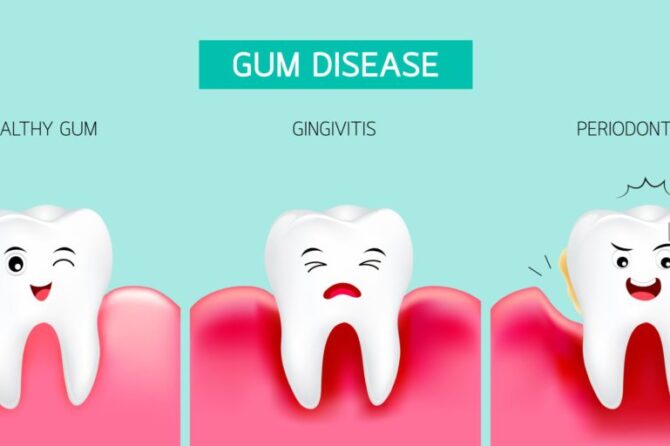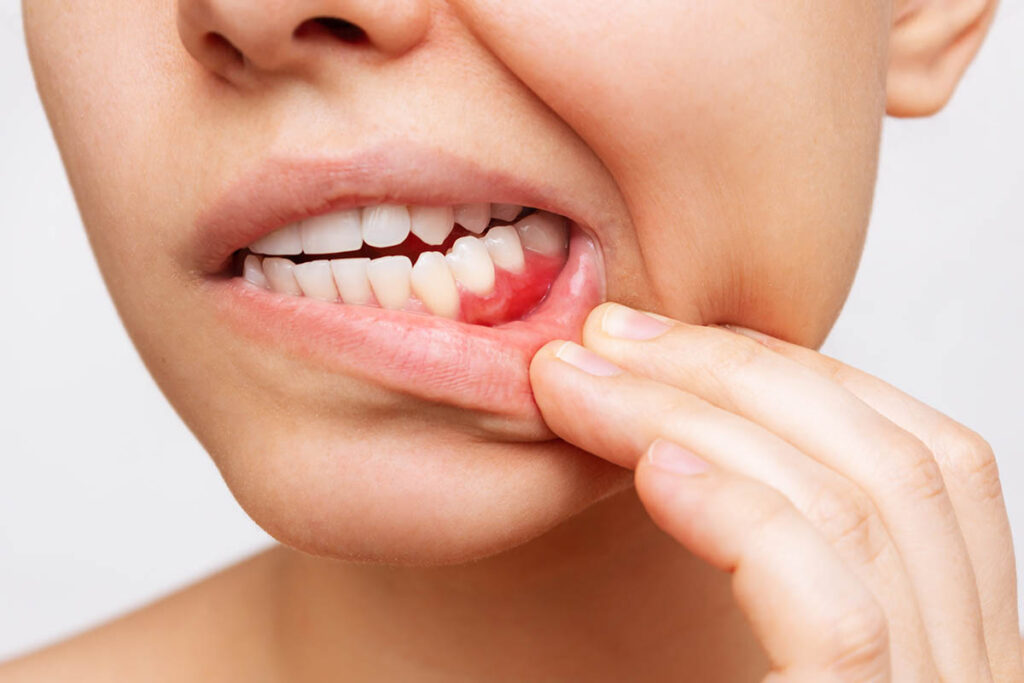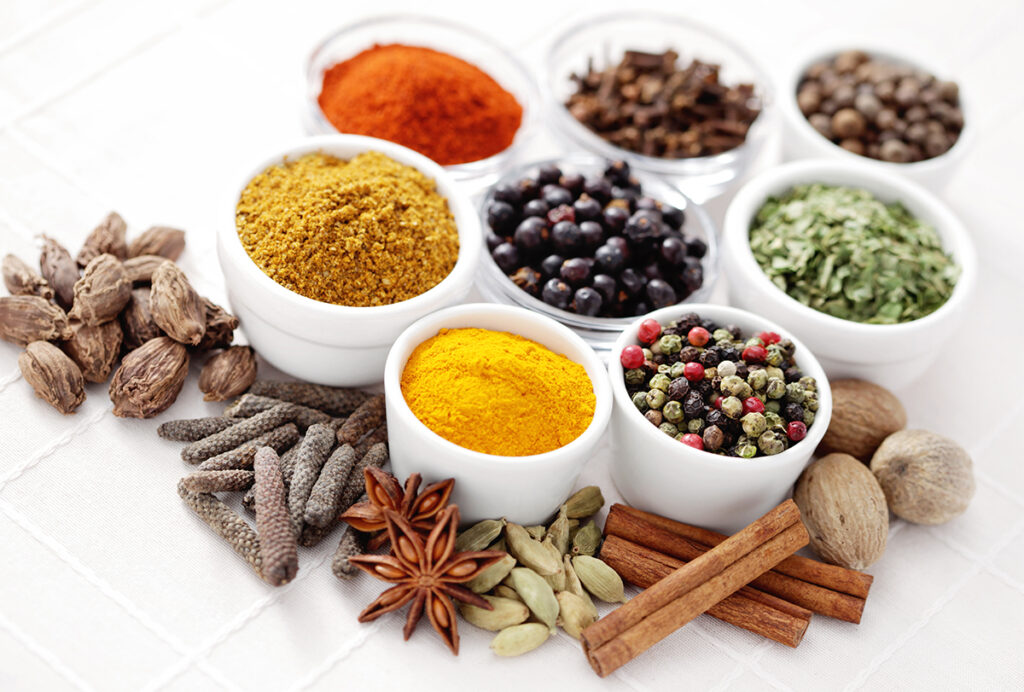
Simple Home Remedies to Help You Heal Gums
Gums are an essential part of good oral health and hygiene, yet many of us take them for granted until something goes wrong. When dental issues arise, it can be difficult to know the best way to deal with them. That’s why we’ve created this guide on how to heal gums. The purpose of this guide is to provide readers with information on the various techniques available to help restore gum health. We’ll start by exploring the symptoms of gum disease, the causes behind it, and prevention techniques that people can use to keep their gums healthy. We’ll also look at home remedies and traditional treatments, as well as diet solutions, lifestyle changes, and other considerations for optimal gum health. Lastly, we’ll provide a summary and conclusion, as well as a list of resources for further reading. By the end of this guide, readers will have a better understanding of what steps they need to take to maintain healthy gums. So, let’s get started!
Symptoms of Gum Disease
Gum disease, or periodontal disease, is an infection of the tissues that surround and support your teeth. If left untreated, gum disease can affect your overall health, leading to tooth loss and other complications. It is important to recognize the symptoms of gum disease in order to identify it and begin treatment.
The first sign of gum disease is usually redness, swelling, or tenderness of the gums. This can be accompanied by pain when chewing or brushing your teeth. Other signs may include receding gums, a formation of deep pockets between the teeth and gums, bad breath, and loose teeth. If you are experiencing any of these symptoms, it is important to visit a dentist in order to receive proper diagnosis and treatment.
Though anyone can develop gum disease, certain factors may increase your risk of developing it. These include smoking, poor oral hygiene, age, genetics, hormonal changes, chronic illnesses, and medications. It is important to be mindful of the things that can increase your risk and to take the necessary steps to prevent gum disease before it becomes severe.

The Causes of Gum Disease
Gum disease, also known as periodontal disease, is an infection of the gums that can cause serious damage to both your teeth and your overall health. While there are many possible factors contributing to gum disease, it is most commonly triggered by poor oral hygiene.
Common lifestyle habits that may lead to gum disease include smoking and chewing tobacco, consuming excess amounts of sugary beverages and food, and failing to practice regular oral hygiene such as brushing and flossing. There are also physical conditions—like diabetes—that may increase the risk of gum disease.
Finally, hormonal changes during pregnancy can leave women more vulnerable to developing gum disease. It’s therefore important for pregnant women to double-down on their oral hygiene routine, and speak with their dentist about any additional preventive measures they should take.
Prevention Techniques
Gum disease is a painful and potentially dangerous problem that can have a lasting impact on your oral health. Fortunately, there are several steps you can take to prevent gum disease in its early stages.
The most important thing you can do to prevent gum disease is to practice good oral hygiene habits. This means brushing your teeth at least twice daily, flossing once a day, and using a mouthwash to reduce bacteria in your mouth. Keeping your mouth clean and free of food debris reduces the accumulation of plaque and tartar, which can lead to gum disease. You should also visit your dentist regularly for checkups and professional cleanings.
In addition to regular hygiene habits, you should consider other lifestyle changes that can help prevent gum disease. Eating a balanced diet that includes plenty of fruits, vegetables, whole grains, and lean proteins can help improve oral health. Try to limit sugary snacks and drinks that can increase levels of bacteria and plaque in your mouth. Additionally, quitting smoking can reduce your risk of developing gum disease.
These simple prevention tips can go a long way towards protecting your gums from disease. Keep your mouth clean, be mindful of what you’re eating and drinking, and see your dentist regularly for professional cleanings. With these steps, you can maintain healthy gums and a beautiful smile.
Home Remedies for Healing Gums
Taking care of our gums is an important part of oral health and overall well-being. While it is important to regularly see a dentist for professional treatment, there are several simple home remedies that can help with gum healing. These self-care techniques can be used to prevent or slow the progression of gum disease, or to help restore gums that are already damaged.
Saltwater Rinses
Salt has long been used to help cleanse and heal wounds, and saltwater rinses are commonly recommended for oral hygiene by dentists. The warm water helps to loosen debris in the mouth, and the salt acts as an antibacterial agent. To make a saltwater rinse, mix 1 teaspoon of salt with a cup of warm water and swish it around in the mouth for 30-60 seconds before spitting it out.
Oil Pulling
Oil pulling is an ancient Ayurvedic technique that involves swishing a tablespoon of oil (e.g. sesame, sunflower, coconut oil) in the mouth for 10-15 minutes before spitting it out. This technique has been shown to reduce inflammation, remove bacteria and plaque, and improve overall gum health. It is important to note that oil pulling should not be used as a replacement for flossing and brushing.
Diet Changes
A diet rich in fresh fruits and vegetables can provide essential nutrients for gum health. It is important to choose foods that are low in sugar and processed carbohydrates, as these can worsen inflammation in the gums. Foods that are especially beneficial for gum health include leafy greens, berries, nuts, whole grains, garlic, and probiotic-rich foods such as yogurt and kimchi.

Herbal Remedies
Many herbs have healing and anti-inflammatory properties that can help soothe swollen and inflamed gums. Commonly used herbs for gum health include myrrh, turmeric, aloe vera, and goldenseal. These can be applied topically as a paste, or taken internally as tinctures or teas.
Gum health is important not only for keeping your mouth clean and free of disease, but also for overall health. When it comes to healing gums, there are some special considerations that need to be taken into account. First, it’s important to recognize the importance of seeing a dental professional if symptoms worsen. Some processes, such as treating gum recession, can be difficult to treat with home remedies alone and may require professional treatment. It’s also important to understand the role of stress and hormones in gum health. Stress can worsen the symptoms of gum disease, while hormones that occur naturally during pregnancy or puberty can increase the risk for developing gingivitis. Finally, genetics play an important role in gum health. Some people have a genetic predisposition to periodontal disease, and may need to take extra care to maintain healthy gums. By understanding these considerations and taking preventive measures, individuals can maintain healthy gums and ensure their overall well-being.

Traditional Treatments for Healing Gums
When it comes to healing gums, the most effective treatments are often those that are prescribed by dental professionals. These treatments can include professional dental cleanings and oxidizing agents that kill bacteria and help reduce inflammation.
Dentists might also recommend prescription mouthwashes, antibiotics, or anti-inflammatory medications to kill bacteria, reduce inflammation, and promote healing. In more serious cases, they may suggest gum surgery to remove damaged gum tissue and restore healthier gum tissue.
It’s important to discuss any recommended traditional treatments with your dentist before starting them to ensure they are safe and will work for your specific needs. Your dentist may also refer you to a periodontist, a specialist in gum diseases, for further evaluation and treatment.
Diet Solutions
Your diet is an important factor in gum health, as the foods you eat can both benefit and harm your mouth. Eating a nutritious diet full of whole, unprocessed foods can help your gums stay healthy and aid in healing if needed. But on the flip side, eating sugary snacks and drinks can contribute to poor oral health.
The best way to improve gum health through diet is by consuming foods that are high in key vitamins and minerals such as vitamins C, D, and K, as well as zinc, iron, and folic acid. Additionally, healthy fats like omega-3s can help reduce swollen or bleeding gums. Examples of foods that contain these nutrients include apples, plant-based oils, wild-caught fish, spinach, kale, and other leafy greens. On the other hand, avoiding sugary treats and drinks, as well as processed foods, can help reduce your risk of developing gum disease.
In addition to making sure you are getting the right nutrients in your diet, it is recommended that you chew sugar-free gum to help remove debris out of hard-to-reach places and increase saliva production. If you have gum disease, you should also avoid certain acidic or sugary foods and drinks, such as soda and citrus fruits, to avoid further irritation.
Lifestyle Changes for Gum Restoration
Gum health is an important piece to consider for overall health and well-being. Creating a few simple lifestyle changes can help to heal and restore gums. Here are some suggestions to help get started:
- Limit or avoid sugary beverages, especially soda and other carbonated drinks.
- Cut back on processed foods and snacks. Choose fresh fruits and vegetables instead.
- Practice mindful eating and chew food slowly to fully savor it.
- Incorporate regular exercise into your routine. Aim to fit in 30 minutes per day.
- Reduce stress by taking time for yourself. Practice deep breathing or yoga stretches.
By making these small changes to your daily routines, you can experience natural healing in your gums, leading to improved overall health.
Gum disease can be an uncomfortable and painful condition, and the good news is that there are ways to heal gums. Through proper prevention techniques, like daily brushing and flossing, as well as lifestyle changes and diet solutions, we can begin to restore our oral health. Home remedies, such as salt water rinses and herbal teas can provide additional relief, while traditional treatments like prescription medications or professional cleanings may be necessary in more severe cases. With this guide, readers have all of the necessary information to help them heal their gums.
The Importance of Oral Health Care
Good oral health is essential for overall wellbeing. Taking care of your teeth and gums is important not only for maintaining confidence in your smile, but also for preventing potential health issues. Poor oral hygiene can cause bacteria to build up, leading to inflammation, pain and infection in the gums.
If you notice any signs of gum disease, it is important to seek professional help. Seeing a dentist or other medical provider can help to diagnose and treat any underlying conditions that are causing your gums to become infected. Additionally, they can provide guidance on how to manage your symptoms and prevent further damage.
It is important to remember that when you are healing gums, diet and lifestyle changes can be beneficial. Eating healthy, limiting sugary and acidic foods, and avoiding smoking and alcohol are all important components for supporting oral health. Additionally, making sure to stay up-to-date with regular brushing and flossing, as well as seeing a dental professional for regular checkups, are all part of an effective plan for improving gum health.
By following these tips and speaking with a doctor or dentist, we can all take steps towards healthier gums and a happier smile.
Resources
For more information on gum health, please check out the following resources:
- American Dental Association – Key to Good Oral Health
- WebMD – Gum Disease: Types, Causes, Symptoms and Treatments
- Colgate Palmolive – The Importance of Gum Care
- Mouth Healthy – Gum Disease
- Medline Plus – Gum Disease
Finally, if you ever have any further questions or concerns, feel free to speak with your dentist or doctor. They can provide personalized advice based on your individual medical history.
Answers to Common Questions about Healing Gums
- Q: What is gum disease?
A: Gum disease is a condition, typically caused by poor oral hygiene, that causes inflammation and irritation of the gum tissue. Typically referred to as periodontal disease, it can affect the health of teeth and the bones that support them in more severe cases. - Q: What are the symptoms of gum disease?
A: Symptoms of gum disease can include bleeding gums when brushing, receding gums, pain or discomfort when chewing, gaps between teeth, and bad breath. - Q: What causes gum disease?
A: Poor oral hygiene, smoking, certain medications, and certain health conditions are all potential causes of gum disease. - Q: What are some tips for preventing gum disease?
A: Practicing regular oral hygiene habits such as brushing twice daily and flossing once daily, eating nutrient-rich foods, and avoiding tobacco products may all help to prevent gum disease. - Q: What home remedies can be used to heal gums?
A: Home remedies for healing gums can include rinsing with a saltwater solution, rubbing a garlic clove on the gums, using baking soda as a paste, and adjusting your diet to include more vitamins and minerals that support oral health. - Q: What kind of traditional treatments are available for treating periodontal disease?
A: Traditional medical treatments for periodontal disease involve professional dental cleanings as well as antibiotics, antiseptics, or antibacterial mouthwashes, depending on the severity of the infection. - Q: Are there lifestyle changes I can make that may help to restore my gum health?
A: Making lifestyle changes such as quitting smoking, reducing stress, and exercising regularly can improve overall health and might help to repair damage caused by gum disease.
